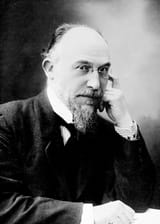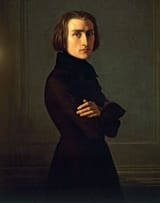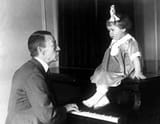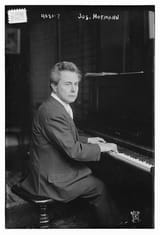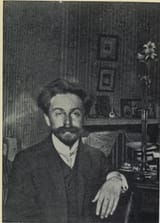>>127655229
Saying which, he turned his head, and, as I thought, gave me a look which meant: “Now listen, you will hear something.” He began to play, and I held my breath as I listened. Rubinstein had played on a beautiful Bechstein in a hall with very good acoustic properties; Liszt was playing in a little carpeted room, in which small space thirty-five to forty people were sitting, and the piano was worn out, unequal and discordant. He had only played the opening triplets, however, when I felt as if the room no longer held me, and when, after the first four bars, the G sharp came in in the right hand I was completely carried away. Not that he accentuated this G sharp; it was simply that he gave it an entirely new sound which even now, after twenty-seven years, I can hear distinctly. He played the whole of the first movement, then the second; the third he only commenced, saying that he was too old and had not the physical strength for it. I then realized that I had completely forgotten having listened to Rubinstein two hours before. As a pianist he no longer existed. I make this statement deliberately with a full knowledge of what I am saying—and as my readers know my opinion of Rubinstein they may thus gain some faint idea of what Liszt was as a pianist. When he had finished playing Liszt got up and came across to me. I had tears in my eyes, and was quite unstrung. I could only say:
“Meister, I am quite dazed. I never heard anything like it.” Upon which he smiled kindly, and said:
“We know how to play after all, eh?“
I now understood what Anton Rubinstein meant by calling himself a common soldier and Liszt a General, and how true this estimate was. In my opinion Liszt was as far removed from Rubinstein as Rubinstein from the rest of us.
